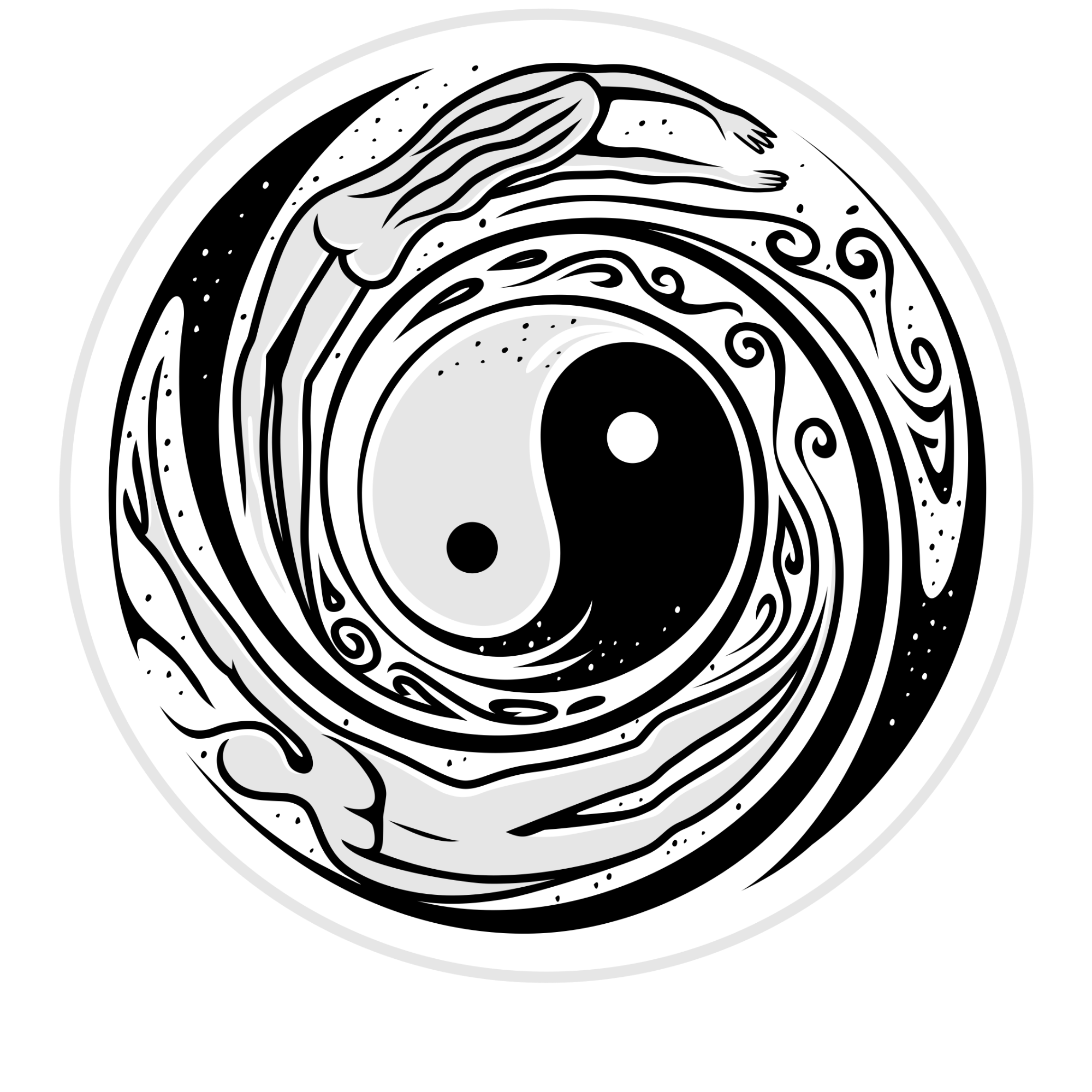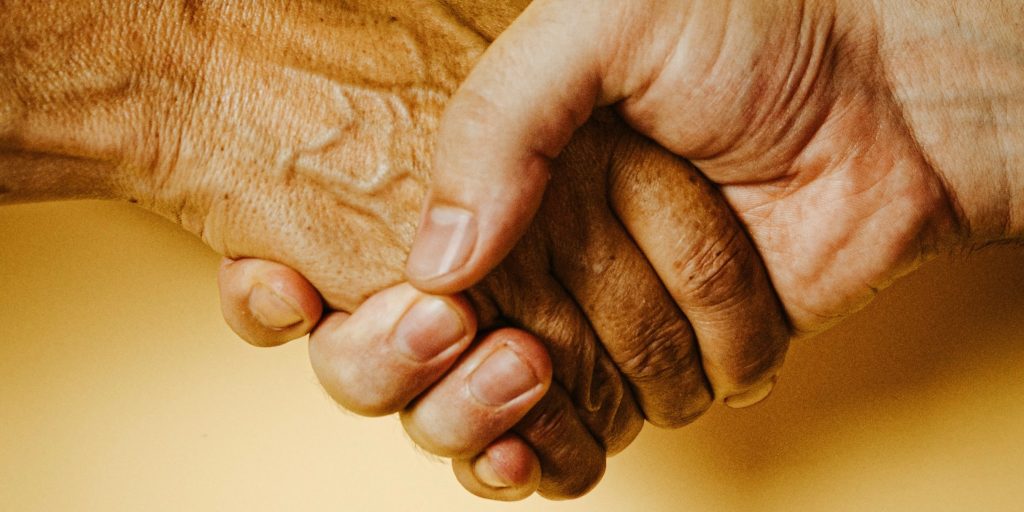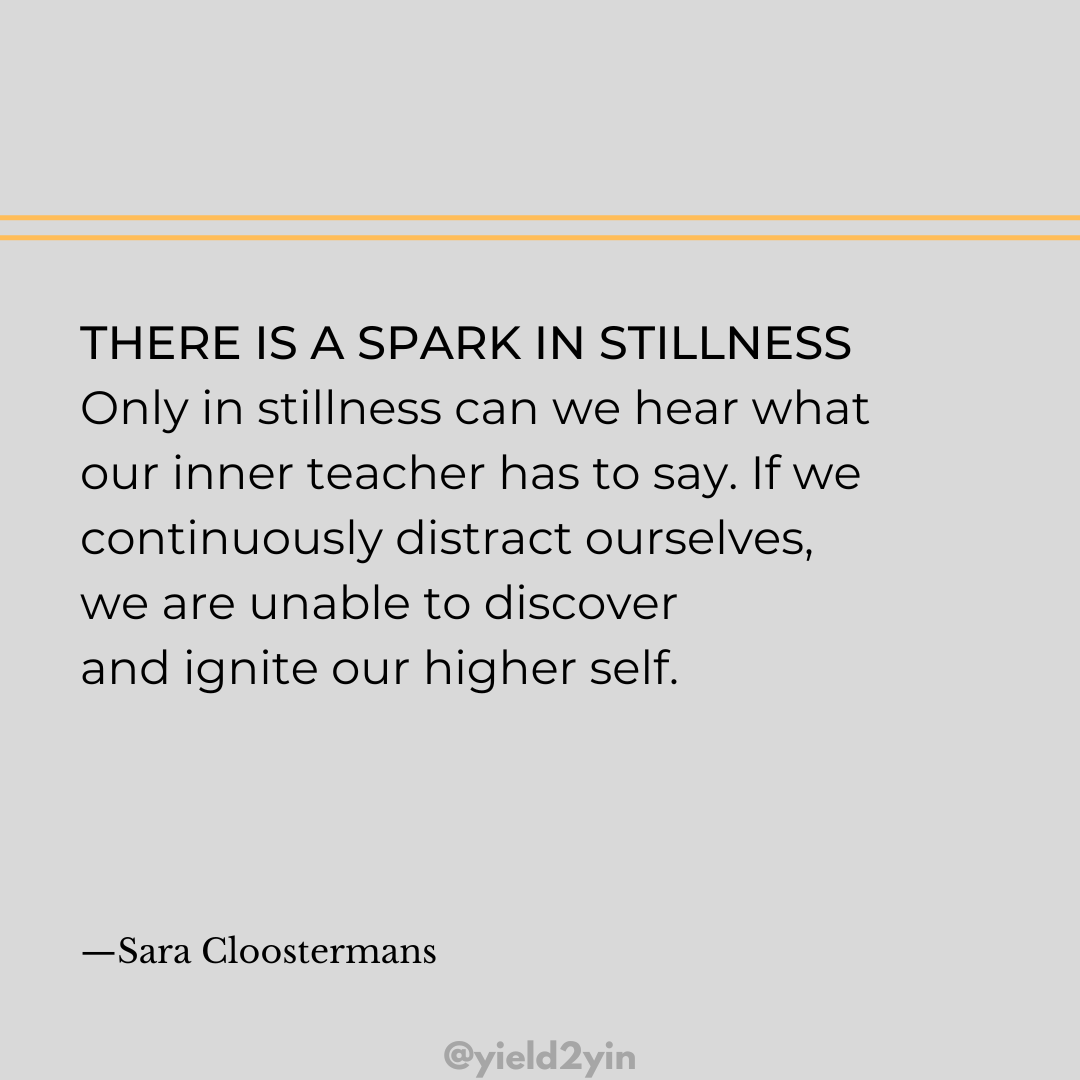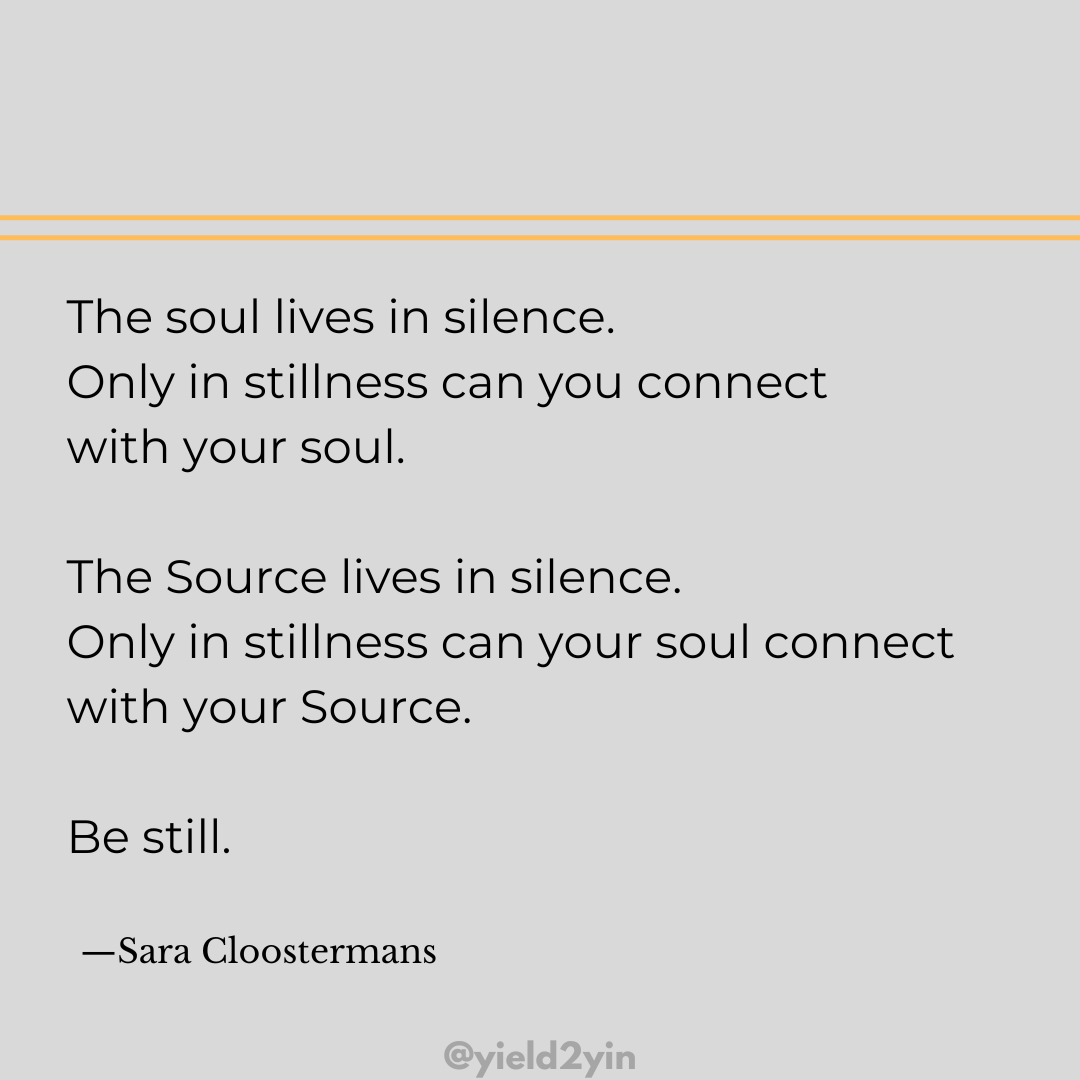Even though many people experience at least one or two great losses over the course of their lives, that doesn’t mean you know what to do or how to think or feel when you’re in the midst of bereavement—or expecting upcoming loss.
If you are feeling confused, emotional, numb, angry, distracted, etc., that is all considered completely normal. There is not a singular correct way to process an upcoming death. There are, though, a few truths that can help guide you and center you throughout this painful time when someone you love is dying.
1. Loss is universal and unpredictable—be grateful for the day-to-day little joys
We will likely experience several significant losses at different points in our life. Unless we die first of course, but let’s not do that 😉. There is no easy way around loss if you think about it since the only options are either dying first or surviving people we deeply care about.
I look at my in-laws—both in their eighties and in good health. When people comment on their old age, my father-in-law says, “better than the alternative.” True, but think of how many losses both have experienced. They have survived parents, siblings, friends, including some of their best childhood friends, close neighbors, former coworkers who became friends, and so on. The truth is we either die young and experience little to no loss, we die old and experience lots of loss, or we end up somewhere between the two on the “age-of-death continuum,” and still experience a fair amount of loss.
Ideally, in a “fair” world, we want loss to happen in chronological order, the oldest dying first, yet we know that is not the case.
Maybe the answer to loss is to accept mortality, including the “randomness” and “unfairness” of it all and, as we are going through the stages of grief, to find ways to practice gratitude for the small joys in everyday life.
2. Don’t wait too long to visit someone who is dying—you will never regret going “too early” or “too often”
When someone who lives further away from you is dying, and you want to be there when they die, it can be hard to decide when to drive or fly out to be there with them. Time of death is unpredictable. My recommendation: don’t wait too long.
Even if you end up going more than once, let’s say twice, three times, or even four, you will never regret this, no matter how inconvenient (taking time off work, spending a lot of money on travel, etc.). I guarantee you that once your loved one has passed, you will never look back on those trips and consider them to have been in vain.
You will be grateful for all those end-of-life moments that you still had together.
The irony is that, even with a high number of visits, you may still end up missing the actual time of death, but because of all those additional memories that you are now left with, it won’t matter as much.
3. Be there for your loved one when they die—it is hard, but life-changing
Being present the days before and/or the moment of a loved one’s death can be an otherworldly experience, much like being there for the birth of a baby. I have had the chance to experience both and would not have missed either experience for the world. Both were hard, but life-changing.
To me, witnessing a person’s passing on from one realm or dimension to another—and here I am referring to both a loved one’s death and a baby’s birth—involves a death and a birth. The former represents leaving earthly life for whatever comes next (referred to as “life after death” or “afterlife”) and the latter is leaving life in utero for earthly life.
I consider the baby’s arrival, either by C-Section or by passing through the birth canal, a death and a birth simultaneously: the end of life in utero (and whatever came before that if you believe in an eternal soul) and the beginning of life on earth.
When we witness the death of a loved one, we can only see the departure from life on earth and not the arrival on the other side, if you believe there is such a thing. When you talk to people or read people’s stories who have had a near-death experience, they describe a similar journey—passing through a canal (or tunnel) and then being welcomed by a bright light and people (or souls) on the other side.
4. Be gracious with yourself if you feel relieved when a loved one dies
Some people feel a sense of relief when a loved one dies and that is ok. It may bring up some feelings of guilt and that is ok too even if there is nothing to feel guilty about. The main reasons why you may feel a sense of relief are:
- The person who died had been intensely suffering for a long time either with their mental health, physical health, and/or addiction issues
- The person who died did not have much or no quality of life left and had been wanting to die
- The person who died had taken up a large portion of your physical, mental/emotional, and/or financial energy for a long time
- The person who died took up so much of your time, including worry time, while they were still alive that it felt as if you were missing out on life completely
There is no need to judge yourself or others for feeling a sense of relief if a loved one dies under these particular circumstances. It is normal and common. Allow all thoughts and feelings—there is no one right or wrong way to navigate grief.
5. Be accepting of people’s end-of-life choices, including Physician-Assisted Suicide (PAS)
I understand that people can get all up in arms when it comes to the idea of PAS. I’m not saying you are not allowed to get upset about it, but I am suggesting staying open and non-judgmental. We really have to walk in someone else’s shoes to understand their full experience, including the dying experience and all the pain and suffering, both short-term and long-term, that may come with it. Ironically though, there is no more walking in the dying’s shoes since they are most likely bedridden.
Most people don’t question the idea that putting their dog “to sleep” (mark the soft wording we use for the same idea when it comes to animals) at a certain point in their deterioration is the humane thing to do (and this is without the dog’s consent, mind you). Yet, some of those same people believe humans should always suffer their way through the dying process regardless of their individual circumstances and their level of deterioration.
I’m not saying we need to go all Kevorkian on all dying people who give consent to be put to sleep, but at least we can create some level of acceptance that PAS may be the right thing to do under some circumstances for some people. One of those people may be someone you love who chooses or chose to go that route.
6. Difficult anniversaries are not cliché—be self-compassionate when you find yourself in a swell of grief
The idea that the anniversary day (or the days/weeks leading up to that specific day) of a person’s passing is harder than any regular day is not cliché. The brain remembers the time of painful or traumatic experiences and stores the information in our body and mind until we have had corrective or healing experiences—this takes time. That is why the first year after a passing is usually the toughest; we have not yet had the chance to have different experiences nor to build new memories.
The same goes for holidays, birthdays, wedding anniversaries, and other special days. They can all be extra challenging. The difference with these special days is that your loved one was still alive the last time you celebrated, so they may be happy memories compared to sad memories (as with the anniversary of a death), but this in and by itself adds to the complexity of your feelings. Just as with the anniversary of a death, you will have to build new experiences and memories as time goes on for you to be able to process your feelings and integrate the experience of loss.
7. You have nothing to lose by believing in something bigger than you—so why not create some openness
Create some space for concepts such as “life after death,” “reincarnation,” and “immortality”—you may not believe in eternal life, but if you allow for just a little opening, what do you have to lose? If you are completely closed off, of course, you will not be able to receive any messages from your loved ones who have passed on.
One option is to book a session with a medium. Here is one I have used a few times: Kelly Fisher with SoCal Medium, but there are many more. Ask around in your area if anyone can recommend a reputable medium. Or check out the TV Series on Netflix “Life After Death” with Tyler Henry, a clairvoyant medium who gives psychic readings to people who have lost loved ones.
Another option is to see if you can find signs in nature (a bird that flies over to sit on your kitchen window sill), with electronics (the same light that flickers on and off at random times), in your dreams (your lost loved one who “visits” you in your dreams), or connected to your religious belief (if you have one).
If you are not looking for signs, you will not see them, and eventually, they will stop showing up. Similar to if someone tries to give you presents, and you turn a blind eye or you don’t want them because they are not “tangible” enough to your liking, the presents will stop coming. Show gratitude instead of looking a gift horse in the mouth. Stay open to the signs—make it easier for your loved ones who passed on to show you both their presents and their presence.
Other Resources When Somebody You Love Is Dying
- Understanding Grief (The Five Stages of Grief)
- 10 Things To Do When You’re Grieving a Loss
- Cups and Roles






Yield2Yin
- Book Recommendation: Journey of Souls: Case Studies of Life Between Lives by Michael Newton
- Mantra: I AM LOVE // repeat with diaphragmatic breathing
- Yin Yoga Asana: Child’s Pose
This page includes Amazon Associate affiliate links, which means I may earn a small commission at no cost to you if you purchase a product I suggest. I only recommend products I believe in. Learn more HERE.







